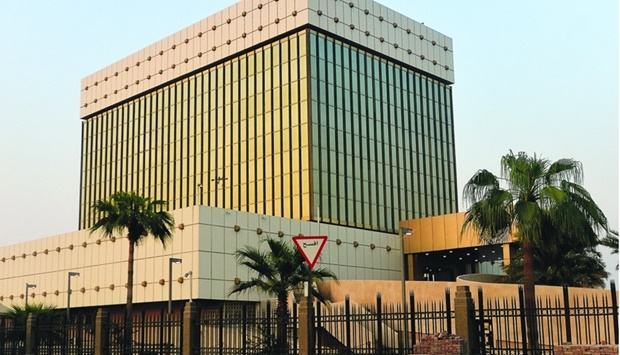Taking cue from the US Federal Reserve, the Qatar Central Bank (QCB) has hiked its key reference rates by 0.25% to 0.5% in view of the riyal's fixed exchange parity with the greenback.
The QCB decided to raise the deposit rate by 50 basis points to 1.50% and repurchase (repo) rate by 0.5%. The central bank also decided to raise the lending rate by 25 basis points to 2.75%.
All Gulf countries have their currencies pegged to the US dollar, except Kuwait, which pegs the Kuwaiti dinar to a basket of currencies that includes the dollar.
The rate hike follows the moves by the Fed, which on Wednesday voted unanimously to increase the benchmark rate by a half percentage point. The biggest interest rate increase in more than two decades comes as part of measures to tackle fast rising prices.
The repo rate is the interest rate for one night, or a very short period of time for the process of buying and selling assets, such as government bonds from the central bank, where dealers purchase government bonds for a certain period and then sell them to investors for either a short period or one night, after which they purchase them the following day.
The decision by the QCB has been on account of "the evolving domestic and international macroeconomic developments."
The rate hike also comes at a time when general price level increase is increasingly being entrenched with latest consumer price index inflation in the country rising 4.42% year-on-year in March 2022.
A recent Qatar Economic Outlook suggested that Qatar is expected to see imported and domestic inflationary pressures due to the rise in prices of basic commodities in global markets caused by the bottlenecks in commodity supply chains as well as the negative repercussions of expansionary financial and monetary policies.
Global credit rating agency Moody's expect the Gulf banks to improve profits as higher interest rates boost income.
Analysts contacted by Gulf Times were largely of the view that the Qatari banking industry would be left with no other option but to pass on the increased (funding) costs to customers.
Sources are of the view that the rate hike in the US would squeeze funds from the emerging markets, including the Qatar Stock Exchange, which is now closed for the Eid holidays.
The market is expected to open the next week on a weaker note as overseas funds would track higher interest rate regime, they said.
The QCB decided to raise the deposit rate by 50 basis points to 1.50% and repurchase (repo) rate by 0.5%. The central bank also decided to raise the lending rate by 25 basis points to 2.75%.
All Gulf countries have their currencies pegged to the US dollar, except Kuwait, which pegs the Kuwaiti dinar to a basket of currencies that includes the dollar.
The rate hike follows the moves by the Fed, which on Wednesday voted unanimously to increase the benchmark rate by a half percentage point. The biggest interest rate increase in more than two decades comes as part of measures to tackle fast rising prices.
The repo rate is the interest rate for one night, or a very short period of time for the process of buying and selling assets, such as government bonds from the central bank, where dealers purchase government bonds for a certain period and then sell them to investors for either a short period or one night, after which they purchase them the following day.
The decision by the QCB has been on account of "the evolving domestic and international macroeconomic developments."
The rate hike also comes at a time when general price level increase is increasingly being entrenched with latest consumer price index inflation in the country rising 4.42% year-on-year in March 2022.
A recent Qatar Economic Outlook suggested that Qatar is expected to see imported and domestic inflationary pressures due to the rise in prices of basic commodities in global markets caused by the bottlenecks in commodity supply chains as well as the negative repercussions of expansionary financial and monetary policies.
Global credit rating agency Moody's expect the Gulf banks to improve profits as higher interest rates boost income.
Analysts contacted by Gulf Times were largely of the view that the Qatari banking industry would be left with no other option but to pass on the increased (funding) costs to customers.
Sources are of the view that the rate hike in the US would squeeze funds from the emerging markets, including the Qatar Stock Exchange, which is now closed for the Eid holidays.
The market is expected to open the next week on a weaker note as overseas funds would track higher interest rate regime, they said.


